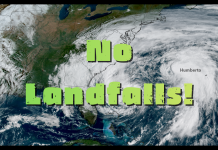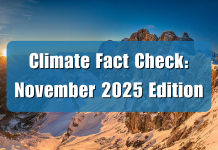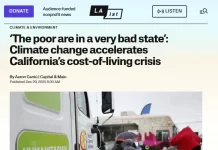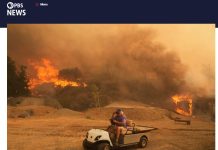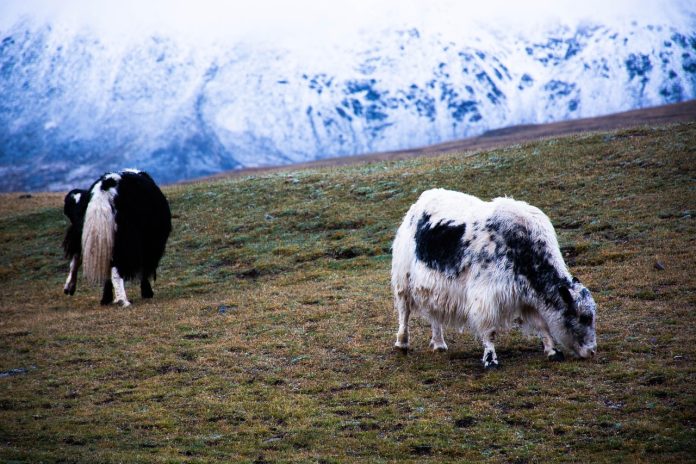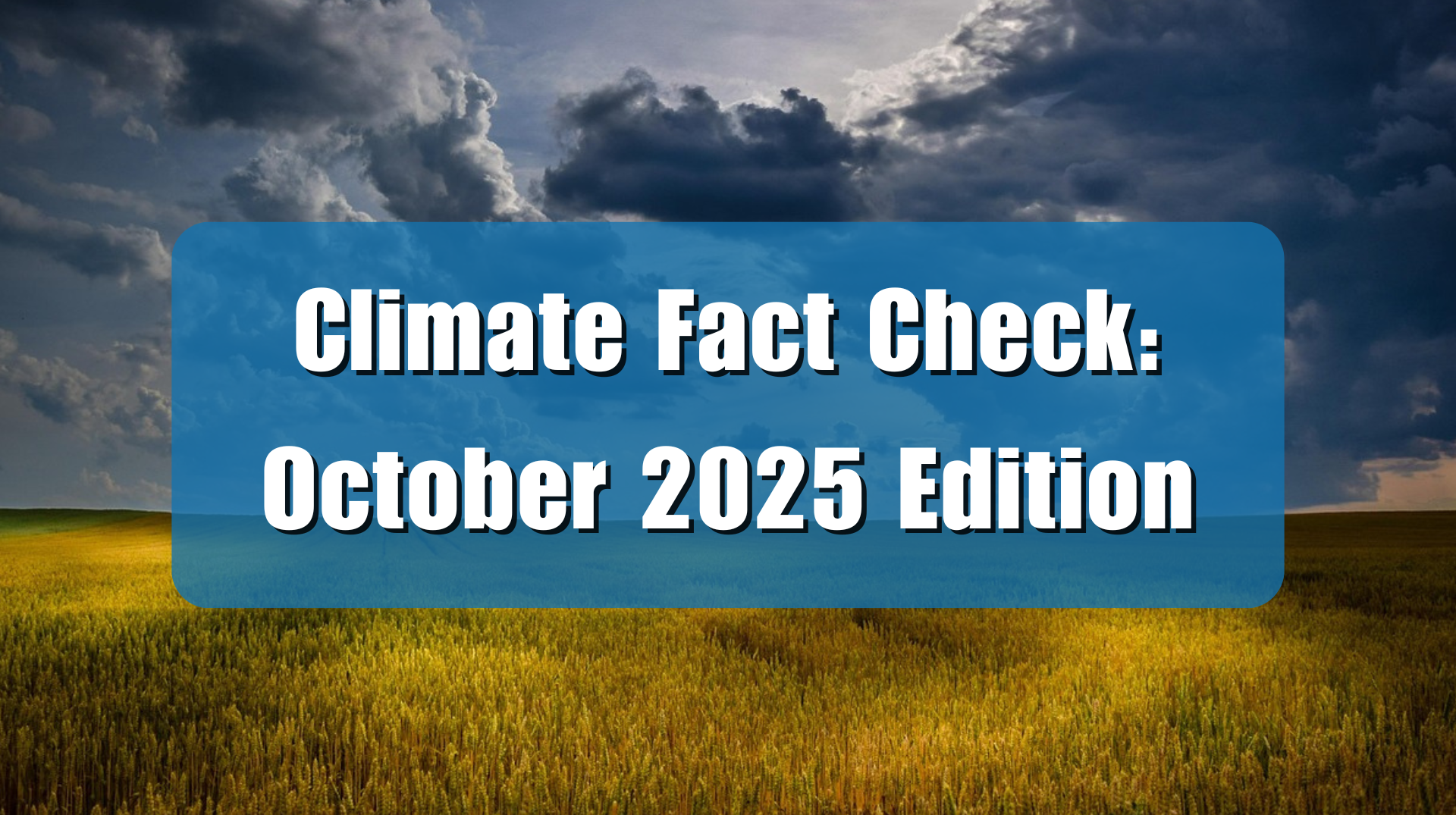Recently several domestic and foreign media outlets, such as Barron’s and Deutsche Welle (DW) posted articles claiming that climate change threatened the lifestyles and livelihoods of Mongolian herding communities, citing livestock losses caused by severe winters in recent years. This is false. Extended, cyclical periods of severe winter weather, called zud or dzud, typified by extremely cold temperatures and heavy snow or ice, have plagued Mongolian herders throughout history, and there is no evidence suggesting climate change has made these events more common or severe.
Livestock raising, herding in particular, is a traditional and critical vocation in Mongolia, accounting for a significant portion of Mongolia’s domestic agriculture industry and its agricultural exports, even today. Five animals are commonly herded across Mongolia’s steppes or grasslands: camels, cattle (including yaks), goats, horses, and sheep. These animals provide transportation, hides for clothing and shelter, milk, cheese, and meat.
The Barron’s article, “Climate Change Pushes Mongolian Herders To The Brink,” and DW’s similarly titled, “Climate change endangers Mongolian herders’ livelihoods,” claim high livestock losses in Mongolia this past winter and periodically in other winters over the past couple of decades are due to climate change.
“Traditional herders are struggling to get by on the Mongolian steppe,” writes DW. “The vast country is being hit particularly hard by climate change and extreme weather.”
Similarly Barron’s writes, “[a]cross Mongolia, more than seven million animals were killed, over a tenth of the country’s total,” blaming the loses on an extreme weather event resulting from climate change.
There are multiple false connections and misleading statements packed into those statements and the articles they come from.
Dzuds of different types have been common throughout Mongolia’s history, on occasion causing losses of up to 50 percent of the nation’s herded livestock. One study of Dzuds states:
Dzuds (the d is silent, z is long, and ud pronounced as the ud in udder) have affected Mongolia throughout history. These winter storms are a combination of deep cold, strong winds, heavy snow, and ice. Storms have been fierce enough to freeze entire herds overnight and the snow so deep that it causes flash floods in the spring when it melts.
The same study claims that dzuds have become more frequent in recent years. However, historical tracking of dzuds, before the advent of modern satellites, transnational news organizations, and even modern national government agencies monitoring and tracking such events, was sparse. As with hurricane and tornado tracking, dzuds likely occurred in the past more frequently than is now known because, while isolated herders were impacted, reporting and recording of the event and associated losses were absent. For instance, there were 15 dzuds recorded in the 1700s, yet it is unknown how many more might have occurred that went unreported/recorded. There was no official tracking of such things then, no temperature records, no snow records, no agencies, and fewer herders,and livestock, more isolated and sparsely spread over the steppes. There is no evidence, for example, that cold weather or heavy winter storms have become more common or chaotic over the past century, so no reason to believe that dzuds have become more common.
As explored in numerous previous Climate Realism articles data does not support the mainstream media’s constant barrage of stories asserting that climate change is making weather more extreme, climate change is not altering the polar vortex – making extreme cold spells more common, severe, and/or unpredictable. Nor is extreme cold or snow and ice storms more common or severe. In fact, as discussed in Climate at a Glance: Cold Spells, the U.N. Intergovernmental Panel on Climate Change has stated that “it is ‘very likely’ there have been fewer very cold days and nights in recent decades, and the report’s authors further claim it is ‘virtually certain’ that there will be ‘decreases in cold extremes’ due to global warming.”
Although livestock losses in recent years have undoubtedly been devastating to some herders, the data show that herds have grown dramatically during the recent period of modest warming. Some losses are due to the fact that herd sizes have grown, but the grazing area has remained relatively stable, as a result, in some areas overgrazing has become a problem. Accordingly, when dzuds strike there are more animals in areas of less forage. Even then, livestock losses as a percentage of the total estimated herds have been greater in the past than at present.
Indeed, even as the Earth has slightly warmed and more dzuds have been reported, data from the U.N. Food and Agriculture Organization (FAO) show that livestock numbers have increased, not been decimated, amid climate change. FAO data show that from 1993 through 2023:
- Mongolian camel stocks grew by more than 14 percent;
- Mongolian cattle (including yak) numbers have increased by approximately 90 percent;
- Mongolian goat herds expanded by nearly 340 percent;
- Mongolian horse stocks grew by almost 95 percent;
- and Mongolian sheep herds have increased by slightly more than 100 percent. (See the figure, below)
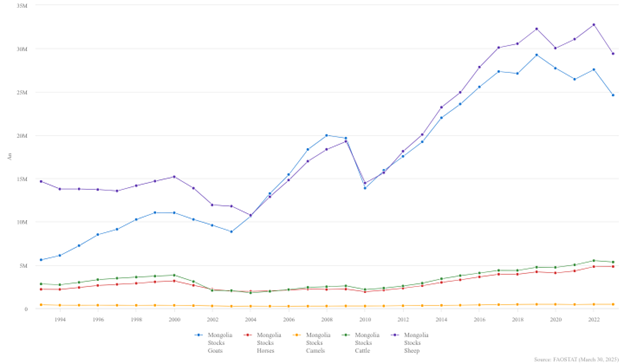
While some herders may have suffered nearly ruinous losses during recent dzud events, there is no measure by which it can be shown that recent climate change is threatening the herding culture or tradition across Mongolia.
Media outlets like Barron’s and DW should check the data and the historical context before asserting without proof that climate change is threatening Mongolian herders and the lifestyles and culture they have developed over the centuries, based on a few scientists unverified claims. Herding, like crop production, has always had to contend with the vagaries of weather. Mongolia’s herders have seen many periods of climate change and have been undeterred in their herding pursuit, thriving despite sometimes dangerous weather events, which can decimate herds in the short-term.


